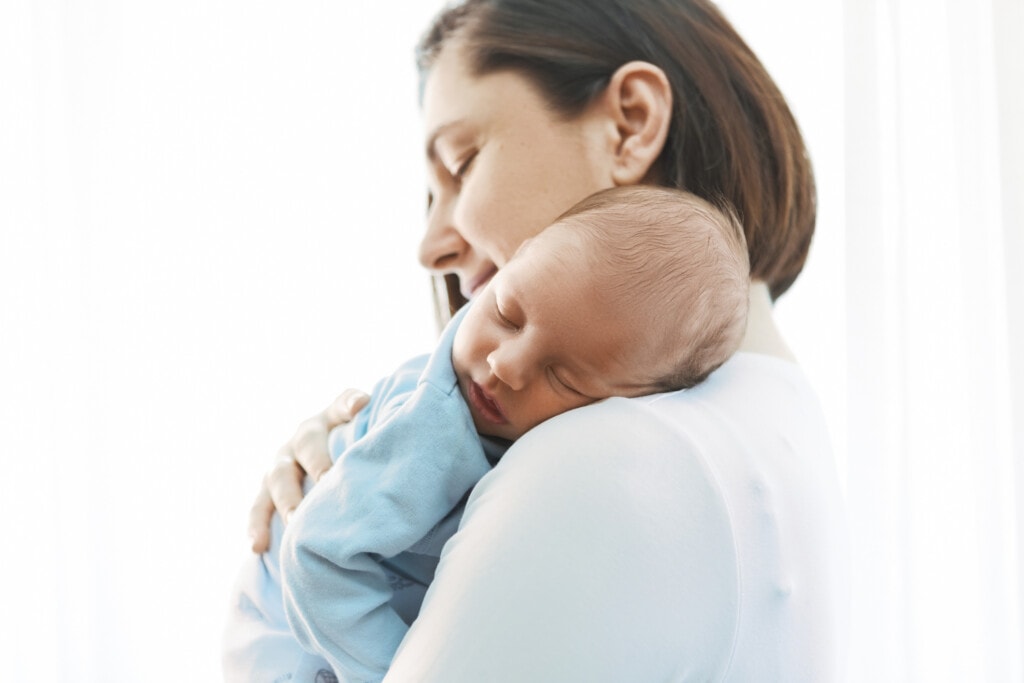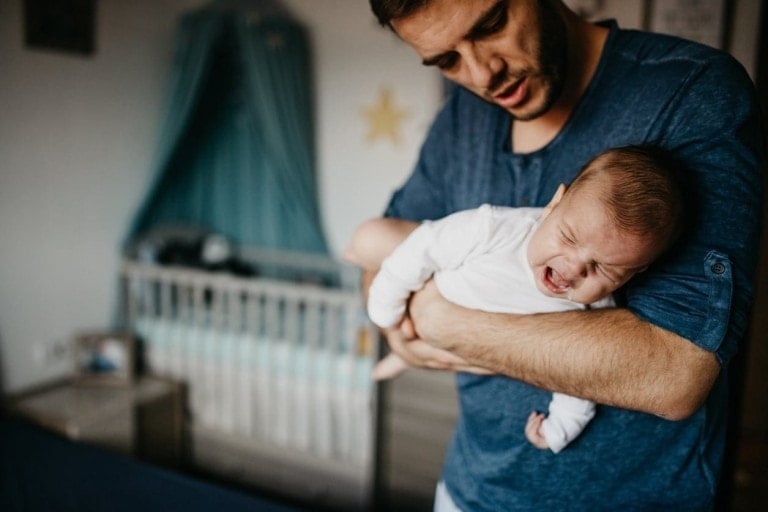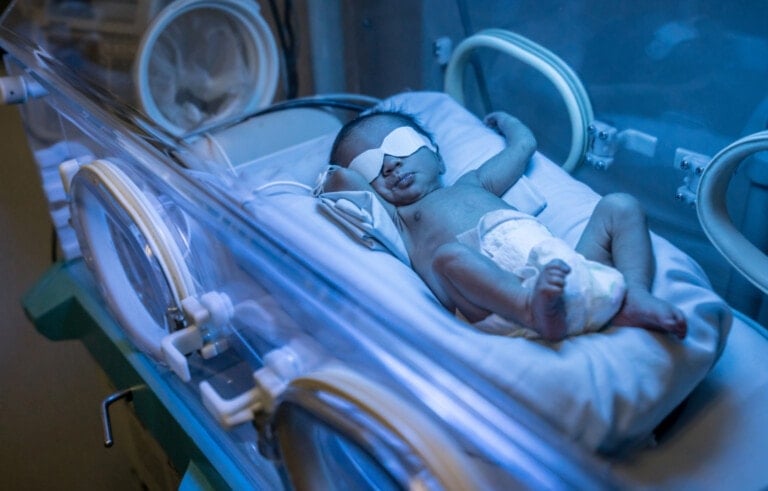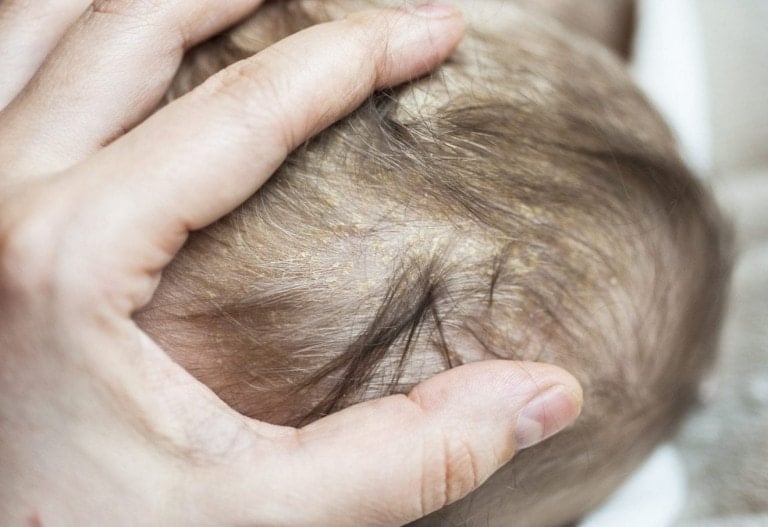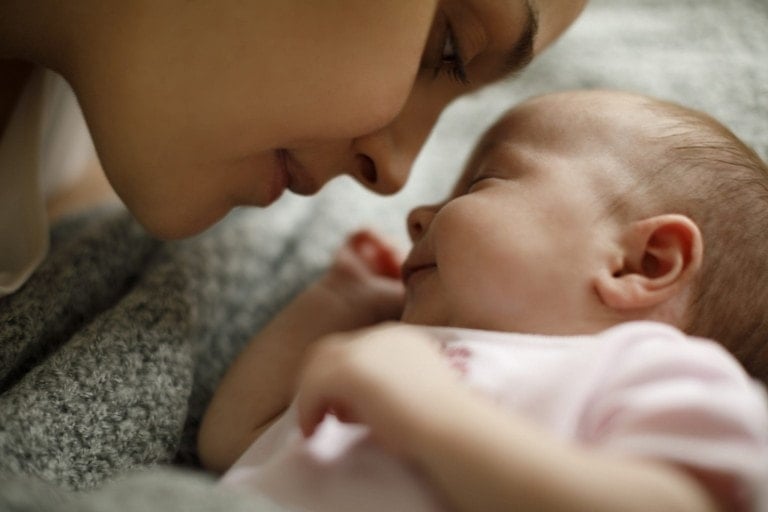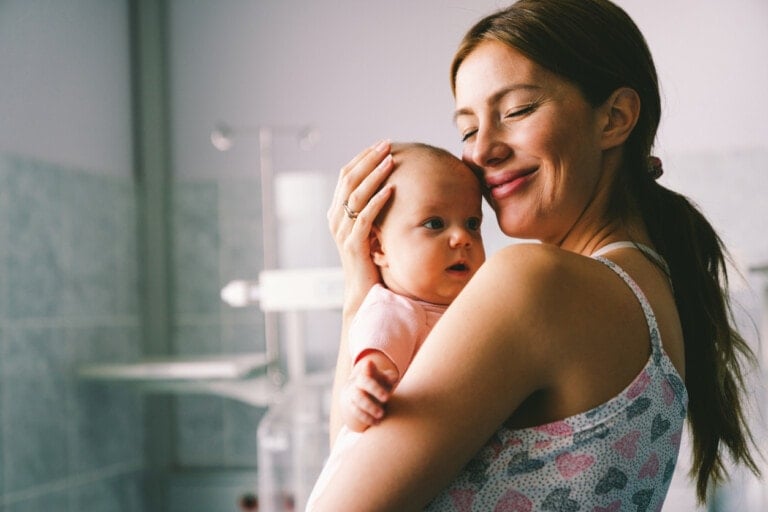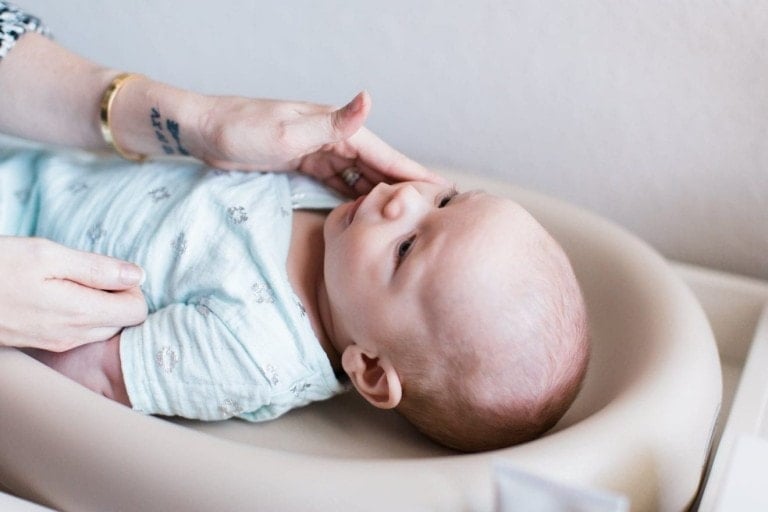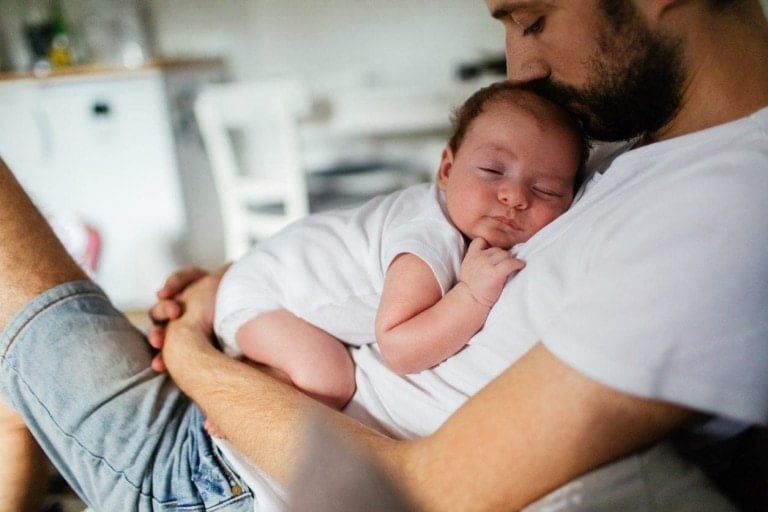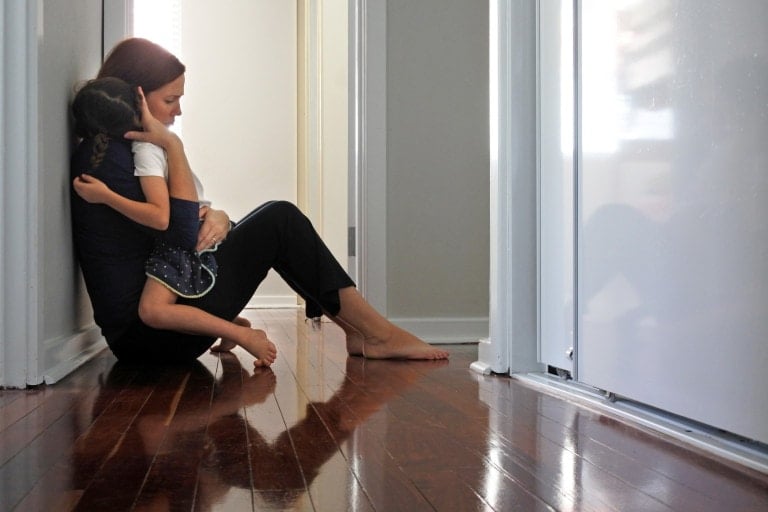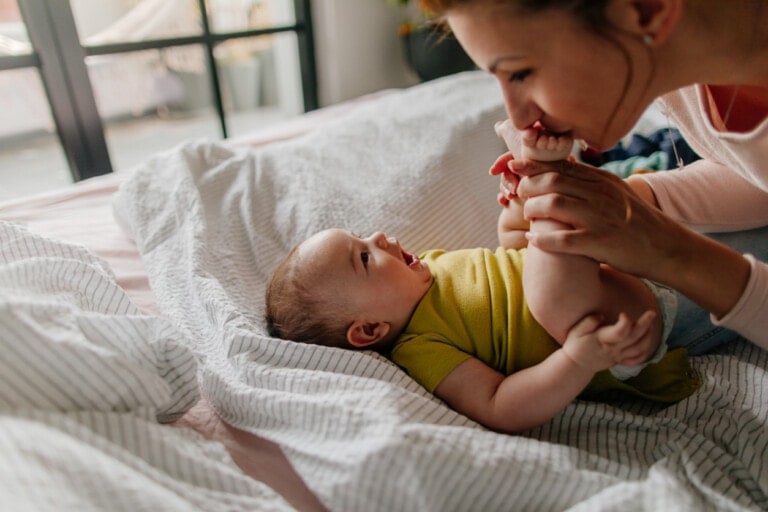By three weeks of age, you and your baby are really getting to know each other. You might be starting to have a good sense of your baby’s cues for feeding and sleeping. Or maybe you haven’t even thought about this yet and are just trying to make it through to the next nap! Whether you’re the former or the latter, that’s okay!
Since every baby is different and goes through its own unique growth spurts and stages, your baby’s own cues are the best way to know what your baby needs, so let’s dive into that a little more. As you and your baby learn more about each other, this will become easier, don’t worry! But just being aware that babies have these cues makes you one step ahead of the game.
Three-Week-Old Baby Feeding and Sleeping Expectations
Your Three-Week-Old Baby and Feeding
For breastfeeding, your three-week-old is still nursing anywhere from eight to 12 times per 24 hours. You should offer both breasts at every feeding session, alternating which one you start with. Your baby might not want both each time, and that’s okay as long as she’s growing and developing well.
Bottle-fed babies usually take in about three to four ounces every three to four hours, for a total of about 20-32 ounces per day. It’s still a good idea to wake them during the day to get these feeds in and allow them to sleep as long as they will go at night.
Pay Attention to Hunger Cues
Aim to feed your baby on demand, which means whenever they’re showing signs of hunger. Stop when showing signs they’re full. All the ranges you read are a guide; every baby is different. So now is a great time to start identifying your baby’s early signs of hunger. Once the later signs begin to emerge, it can be more difficult for the baby to feed.
Some early hunger cues are:
- Puts hands to mouth.
- Turns head towards breast or bottle.
- Puckers, smacks, or licks lips.
- Has clenched hands.
- Sucks on hands, lips, toes, clothes, toys, and fingers.
- Opens and closes the mouth.
- Sticks the tongue out.
- Moves the head from side to side.
- Is more alert.
Later hunger cues:
- Moves head frantically from side to side.
- Is fussing.
- Is crying.
How to Know If Baby is Full
And how do you know if your newborn baby is full? This can be hard to tell sometimes! Babies love to suck, so it can feel like they’re just always hungry and would happily keep sucking away. But you should start looking for your baby’s cues that she’s full. Sometimes they’re subtle, sometimes not so subtle. Here are some signs that your baby might be full:
- Pushes the nipple away.
- Relaxation of the facial muscles, so the nipple slips out of the mouth.
- Relaxation of hand muscles, so the fists open up.
- Closes the mouth when food is offered.
- Turns head away from food.
- Falls asleep.
Your Three-Week-Old Baby and Sleep
What about sleep? How do you know if your baby needs to sleep or stay awake? Your three-week-old baby still needs a lot of sleep, about 14-18 hours a day. But unfortunately, they still have their days and nights mixed up. So often, in the late afternoon and evening hours, your baby, who was pretty calm all day, can start to be quite fussy. We often call this the witching hour. It usually begins when the baby is about three weeks old, peaks around six weeks, and then improves around three months. Gas is also very prominent around this time, and it often gets blamed for the fussiness. One of the things I find often contributes to this witching hour is a cycle of overtiredness.
Baby is More Alert Now But Still Needs Sleep
At three weeks old, your baby will be more alert when awake. So often, the new parent thinks the baby is supposed to be awake for very long stretches. The baby is awake and alert until they start crying, and that’s when the new parent thinks, “Okay, the baby must need to eat or sleep now.” However, crying is a later sign of both hunger and tiredness. There are some things your baby might do to show you much earlier that she’s getting sleepy. And these are what you should be looking for. They’re different for every baby, so study your baby. This is not a big ask, right? You love staring in that cute little newborn’s face! But use your time wisely, and see what your baby does before the crying. If you pick up on this and put her down for a nap at the first sign, it’s so much easier, trust me! It is much harder to get an overtired baby to fall asleep.
Pay Attention to Sleep Cues
So try to pay close attention to your baby’s earlier sleepy cues, and try not to miss the boat on this. The good news is that if you miss the boat today, you’ll get another chance tomorrow and the day after that too. Newborns are often not awake for that long before showing signs of tiredness. The amount of time they’re awake is often referred to as the “wake window,” which can vary but is usually around 30 minutes to 60 minutes at this age. Here are some tired cues:
- Your baby might stare blankly into space or yawn.
- Tired eyes might look like red eyelids or eyelids half-closed. His eyes can also seem heavy, watery, fluttery, or slow to blink. He might even cover his eyes with his hands or rub them. He might have difficulty focusing or go cross-eyed.
- She might turn away to the side.
- He might become quieter, slower, or less focused.
- She might have a weak suck, close her fists, make jerky movements with her arms and legs movements, or start arching backward.
- He might frown or look worried.
- She might start sucking on fingers or pulling on her ears.
- And then FINALLY, later on, your baby will get cranky, fussy, and start crying.
Don’t Worry About Sleeping Habits Yet
Your three-week-old baby will still need to sleep and feed often. Naps can be as short as 15-20 minutes. Sorry, unfortunately, it still counts if this is all they’ve slept! Although you can certainly try to get your baby back down right away if it was that short. Babies this age rarely do more than one or two long stretches of sleep in a day, and “long” is often only around four hours. It can be longer and more consistent. But if it is, I recommend you don’t tell anyone! That’s a surefire way to either make it stop or to get another new mom very angry and jealous.
Three weeks old is way too early to establish any good or bad sleeping habits, so please do not worry about that quite yet. Your newborn is still in survival mode, just like the new parent often is too! So do whatever you need to get your baby to sleep. Of course, always remember to follow the safe sleep guidelines once your baby is asleep. Here are some things you can try:
- Nursing or feeding your baby to sleep
- Rocking or bouncing your baby in your arms
- Swaddling
- Pacifier
- Blackout curtains
- White noise
- Singing
- Baby carrier
- Stroller
- More baby sleep products 0 to 6 months
Your baby was curled up nice and cozy and warm for about ten months. It was also dark and warm and soothing in the womb. Adjusting to this new world takes some time. And sometimes that’s all your baby needs, time to adjust. So in the meantime, enjoy those newborn snuggles!













